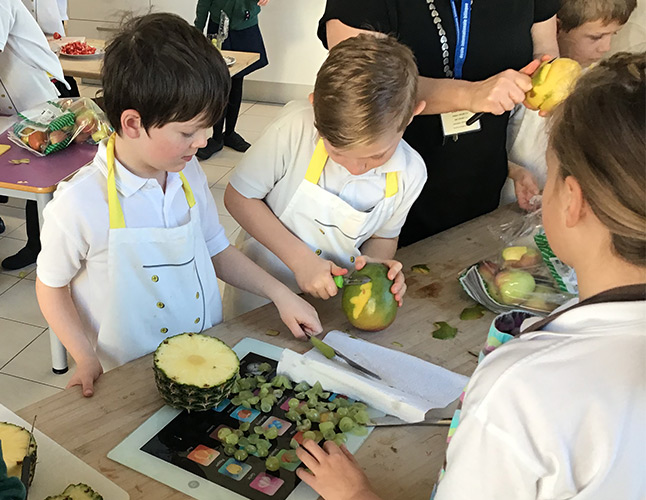Digital Innovation
At Haut-Lac International Bilingual School, we teach traditional subjects in modern and innovative ways to prepare our students for their futures in our increasingly digital world.
aboutDIGITAL INNOVATION

computerscience
- Algorithms and programming
- Data
- Networks & communication
- Equipment

NEW TECHNOLOGIES FORLEARNING AND TEACHING
From using educational apps on the iPad, the interactive whiteboard for group activities, or the eLearning platform to compiling each child’s work into an ePortfolio to send home or sitting eAssessment examinations, IT is now an integral part of most lessons at Haut-Lac.
Over the last few years, we have found that these tools not only help teachers differentiate the learning experience based on individual students’ needs, but also provide ways to teach students the communication, collaboration and critical thinking skills needed to succeed later in life.

digitalCITIZENSHIP
- Confidentiality
- Communication and relationships
- Cyber-bullying and digital drama
- Digital footprints and reputation
- Personal image and identity
- Information
- Copyright

aboutENTREPRENEURSHIP
Such projects provide students with a fun and engaging way to use and develop the skills they learn in different subject areas in real-life situations.
They learn to perform relevant market research, both online and in person, to prepare business plans and marketing material in French and English using different IT software, and to measure ingredients, price items and calculate profit using the relevant mathematical processes.